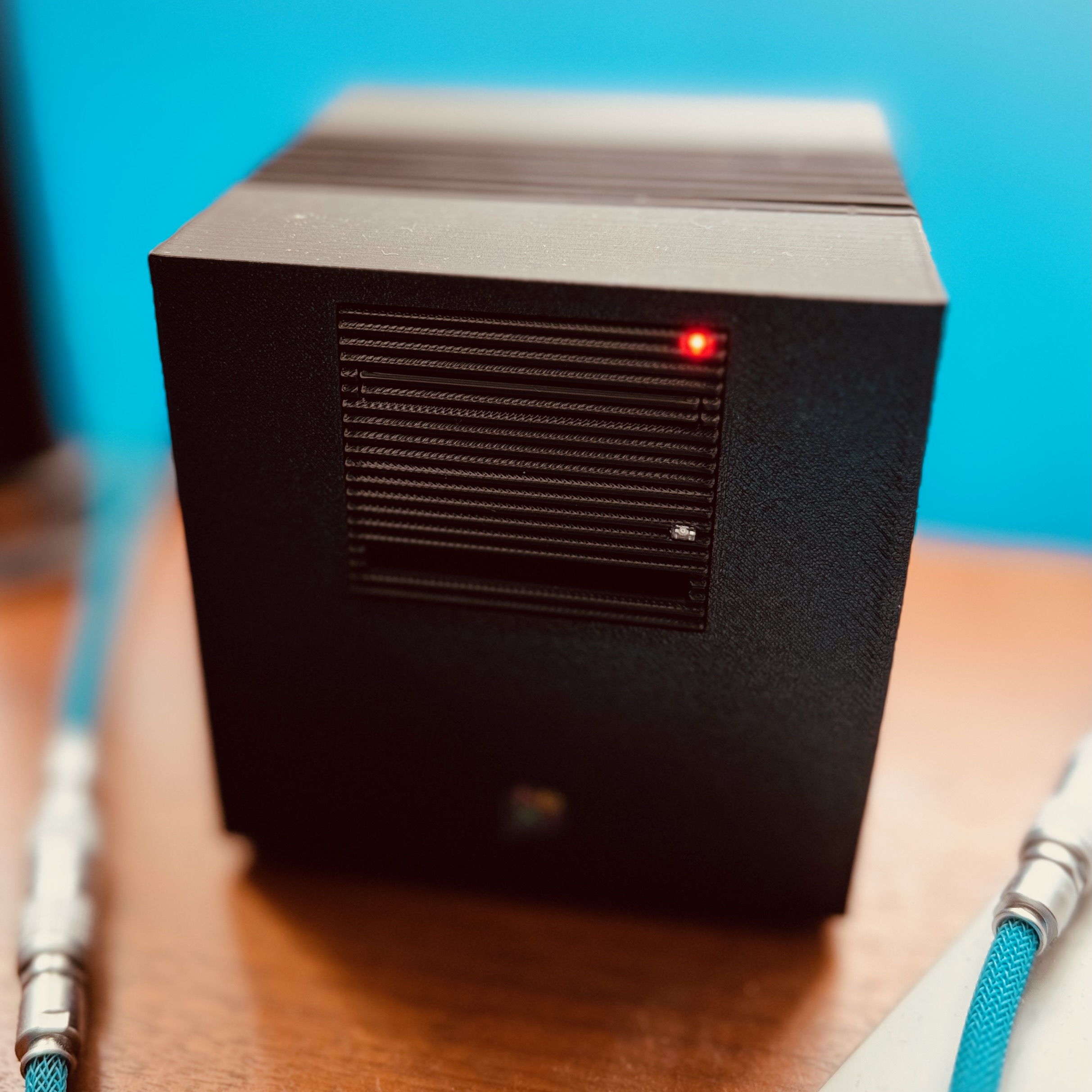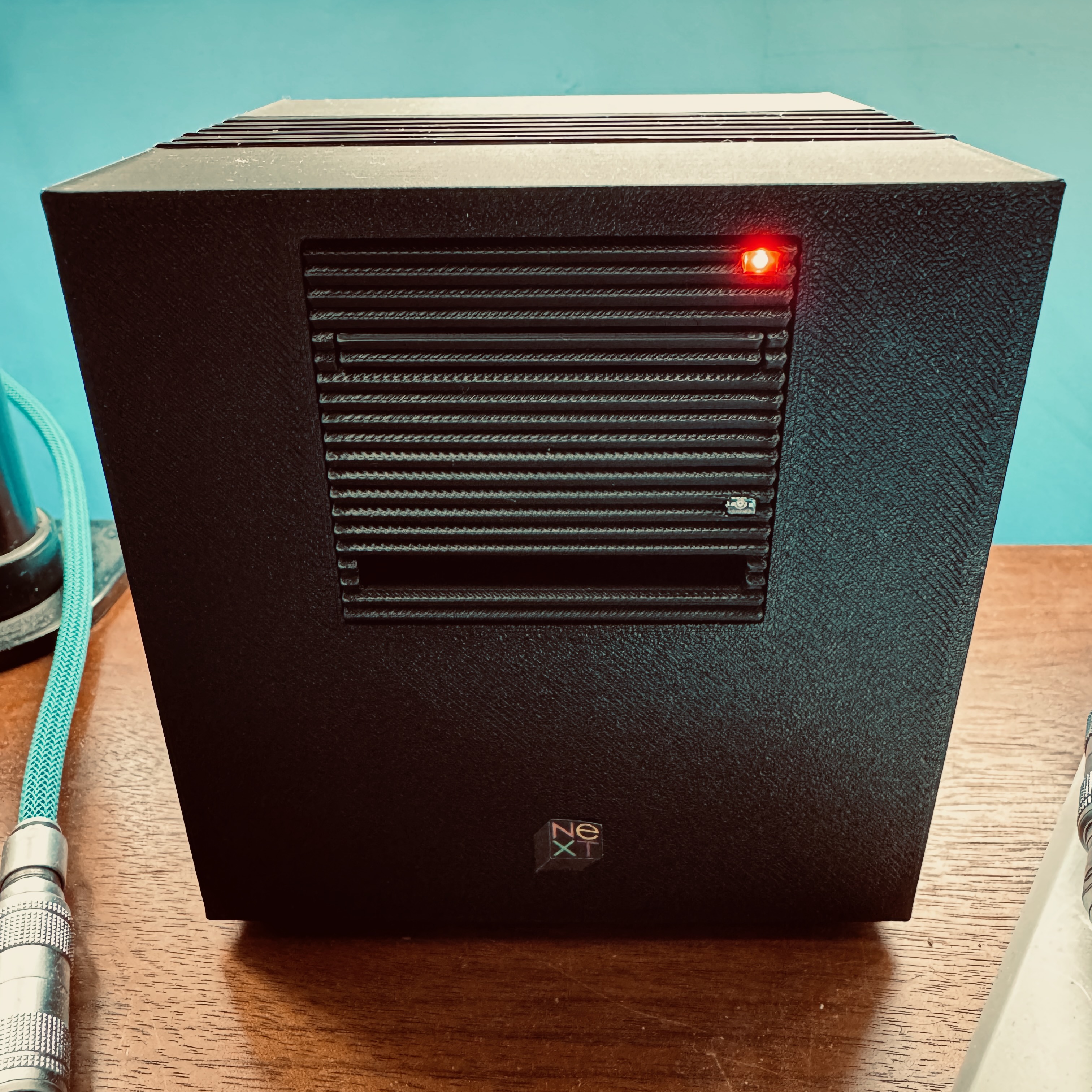Hugo And The NeXTcube
I have deployed websites using Wordpress for many years, I have hosted this site and draytronics.co.uk using Wordpress. But as for all the upsides of convenience and familiarity, as time has gone on I have been less and less happy with security, performance and bloat. Even the simplicity of editing has taken a backwards step over the years.
So I have taken the opportunity to reconsider and move this site over to Hugo, and run it on some low power hardware with a vintage and fun twist.
Why Not Wordpress?
I have used Wordpress for a long time and I am very familiar with it, how it works under the hood and how to make it do what I want. It is easy to manage multiple Wordpress sites, you can have a common workflow and not have to worry about different platforms or frameworks.
I have used it for multiple personal projects due to ease but it has made me a little lazy, if I want a new site I just spin up a Wordpress instance regardless of the type of content required or if it is a good fit for the platform.
Most of my (and probably your) content is static
This site certainly is, as are most blogs or article sites. There is no good reason for sites like this to store anything in a database, or to make multiple calls per page just to display that content.
It is deeply inefficient, it adds additional frameworks, services and overhead that are just wasteful. Yes there are methods to reduce this with caching and site tweaks but you are never going to get it as low as a static website would provide.
It is not as hands off as you may think
I have said that Wordpress has been simple, familiar and convenient, but it is not hands off and it is not without maintenance.
There are frequent updates to the platform, be it the core of Wordpress itself, plugins or themes. These can be automated to a degree, but that is not recommended, I have had several occasions where a plugin update has pulled down a Wordpress instance.
There are the comments to monitor or more correctly spam to deal with.
A static site needs no platform or plugin updates, it does not require a subscription for a plugin to unlock extra features, or worse a subscription to unlock easy updates (no security implications here)!
Security can be hit and miss
As I mentioned previously you need to be on top of updates to ensure your Wordpress site is secure, you also need to trust and understand what plugins and themes you are installing and what risks they pose.
You also need to consider the attack surface, Wordpress is quite broad, you have PHP, a database and dynamic content being served.
Static sites will hugely reduce this attack surface and whilst it will not be zero it is going to be a lot closer to it than Wordpress or any other CMS will provide.
Hugo - Static Site Generator
So what am I using instead of Wordpress? Hugo
Hugo, is a static site generator. A suit of tools written in GO to take a collection of markdown files and a theme and compile them into a static site.
This means I can write content simply with a common and portable standard like markdown, run one compile command and then take the generated static files and host them somewhere (almost anywhere given how basic the requirements are).
All you end up with is some HTML, CSS, images and a little bit of Javascript (if you are using it in your theme). No database no web applications or frameworks, just basic webpages.
And it is fast!
Hosting With A Retro Twist
I moved back to hosting my own sites a little over a year ago, after having a reliable and fast gigabit connection at home. I run a reasonably beefy server with a bare metal Proxmox install on it and it has been an absolute champ for years. It handles all my local storage, media playback, Homebridge services, game servers and more.
But given how lightweight this site now is thanks to moving it to Hugo, I wanted to host it on something a little more interesting.
I love 3D printing and am lucky enough to have a really nice BambuLab printer, that makes it very easy to throw prints together for projects.
Having already made a Mini Mac Classic (more on that in another post) I had been eyeing up the wonderful NeXT Computer Replica by Nina Makes to sit on my desk along side it.
A bit of 3D printing, parts ordering and assembly later (and using a Raspberry Pi I had for my old OctoPrint server), frog as it is affectionately called (the NeXT computers were designed by Frog Design) was ready!
It is running DietPi and plodding along wonderfully running this site.
I think it is fitting that this is a replica of the type of computer that Tim Berners-Lee used to invent the World Wide Web and HTML and now it hosts my website.
 |  |
